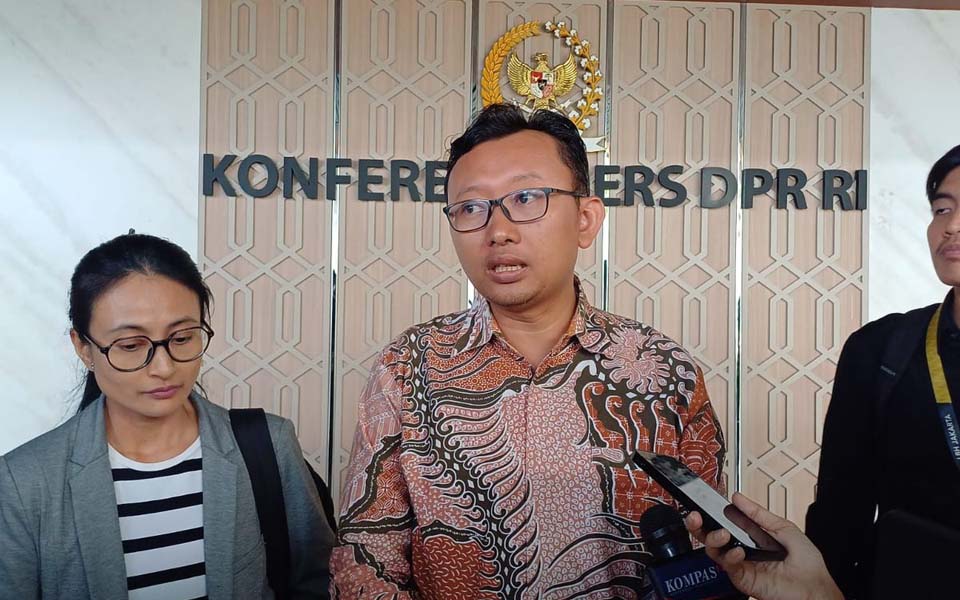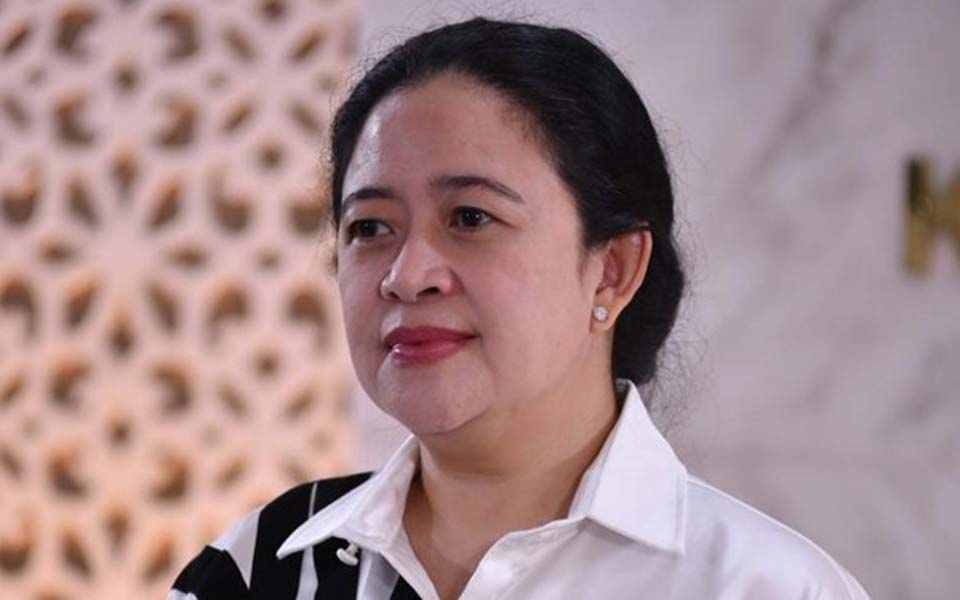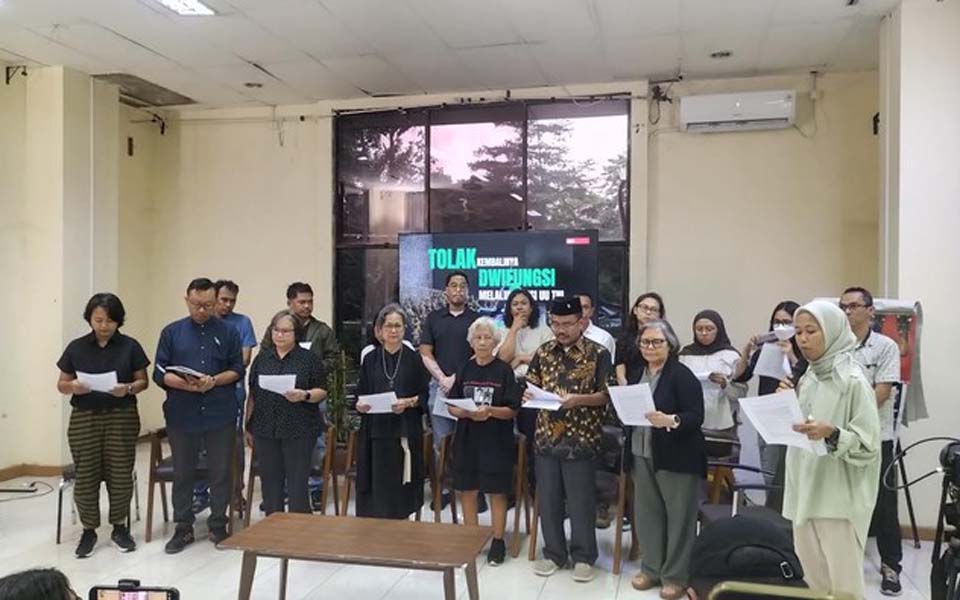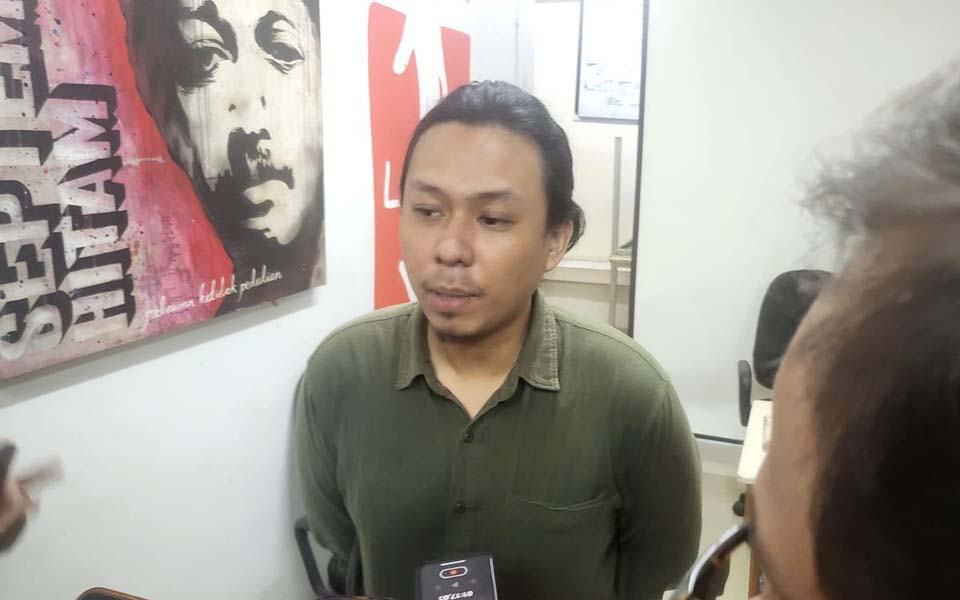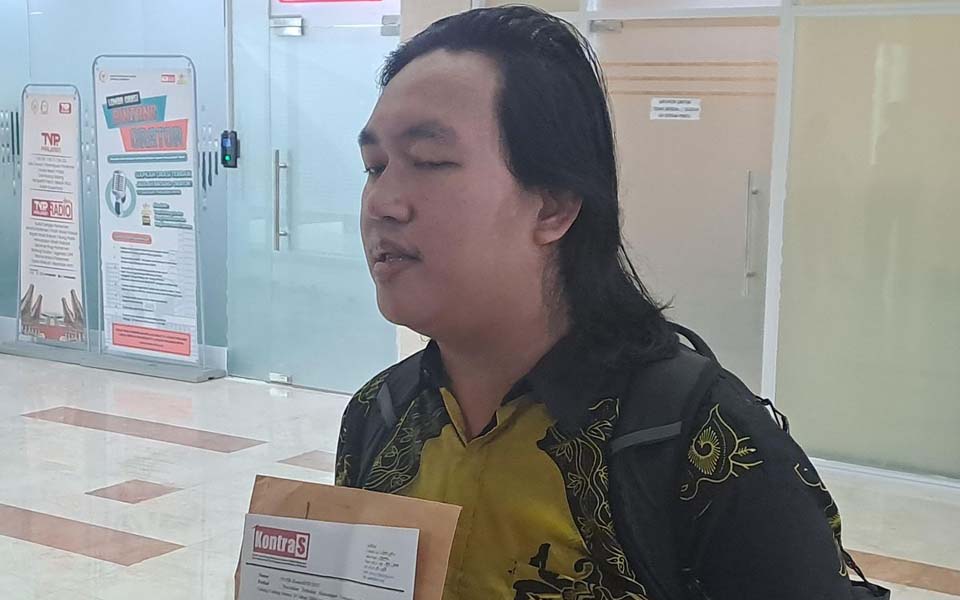Jakarta – The head of the Jakarta Legal Aid Foundation’s (LBH) advocacy for democracy team, Aprilia Lisa, says that the public’s voices and wishes were ignored by the government and the House of Representatives (DPR) in the process of deliberating the Draft Omnibus Law on Job Creation, which the DPR passed into law yesterday.
Lisa believes the public anger which has erupted following the enactment of the Omnibus Law is natural considering how lawmakers ignored the people’s wishes.
“They ignored the voices of the ordinary people. And this anger is an expression of this by citizens who have the right [to protest]. Those who as citizens should be defended by the DPR and the government, but during the Omnibus Law deliberation process were totally discarded”, said Lisa during a virtual press conference on Tuesday October 6.
Lisa said that members of the public who want to hold demonstrations rejecting the Omnibus Law have the right to do so as guaranteed by the constitution. Because of this, they are of the view that the police do not need to obstruct workers’ freedom to express an opinion.
Furthermore, she is of the view that labour groups and other social organisations already understand the risks if they hold demonstrations in the midst of the corona virus pandemic. Lisa said however that the current situation in Indonesia is not ordinary.
The people that reject the law, she said, are certainly thinking more broadly about the terrible impact the Omnibus Law will have on them.
“And they are defiantly thinking, what about my kids, will they be able to go to school later? What about the future of my customary land? What about keeping the planet healthy and avoiding [environmental] disasters? This is what’s making them take to the streets”, she said.
Violation of human rights
Commission for Missing Persons and Victims of Violence (Kontras) working division coordinator Fatia Maulidiyanti meanwhile said that the DPR violated the principles of human rights by not involving the public in the deliberations on the Omnibus Law.
“It was done secretly and this conflicts with human rights principles by not being participatory. The DPR made a decision and took steps which conflict with the public interest and do not represent the ordinary people themselves”, said Maulidiyanti.
Furthermore, Maulidiyanti is of the view that organising demonstrations in the mist of the pandemic gives rise to its own dilemma. Nevertheless, the pandemic also cannot be used a pretext by the police to negate the public’s freedom to voice their views.
She gave as an example many other countries whose people have held demonstrations in the midst of the pandemic when the country is in crisis.
“It can be dealt with by specific means. And there’s no need for the Kapolri [national police chief] to issue a telegram prohibiting labour demonstrations”, she said.
As has been reported, national police chief General Idham Aziz issued telegram Number STR/645/X/PAM.3.2./2020 dated October 2 which asked police not to issue permits for labour demonstrations on October 6-8.
Social and environmental crisis
The People’s Coalition for Fisheries Justice (KIARA) says that the government and the DPR have together created a social and environment crisis which will worsen with the enactment of the Omnibus Law.
KIARA Secretary General Susan Herawati says that the government and the DPR have committed an injustice and even betrayed the mandate of the 1945 Constitution which provides a mandate for, among other things, creating mutual prosperity and enlightening the life of the nation.
“Through this law, the government and the DPR will create injustice and a worsening social and environmental crisis”, said Herawati in a press release received by CNN Indonesia on Tuesday.
Herawati explained that for coastal communities, in the sea and even the small islands spread across Indonesia this law represents a huge threat. She said that investors will be able to invest without social, ecological or cultural considerations.
“The impact will be the destruction of coastal areas, the sea and small islands which will occur on a massive scale”, asserted Herawati.
KIARA suspects that thanks to the Omnibus Law, massive exploitation of natural resources in coastal areas, the sea and small islands will occur.
Herawati also touched on the lack of involvement of maritime communities which are made up of traditional and small-scale fisherpeople, women fisherpeople, fish cultivators and salt farmers in the law’s deliberation and the conservation of coastal ecosystems and traditional coastal communities whose livelihoods will be threatened.
“The Omnibus Law will appropriate the living space of fisherpeople and coastal communities and other maritime communities. This is a theft of maritime communities’ sovereignty”, she said.
Herawati is therefore calling on all elements of society to continue opposing and fighting against the Omnibus Law. (rzr, tst/kid)
[Translated by James Balowski. The original title of the article was “LBH: Rakyat Kini Diabaikan DPR dan Pemerintah”.]






